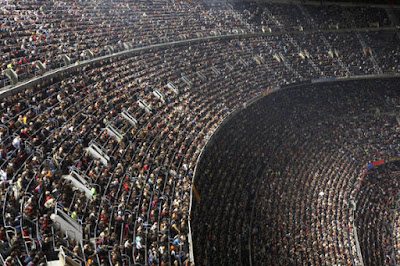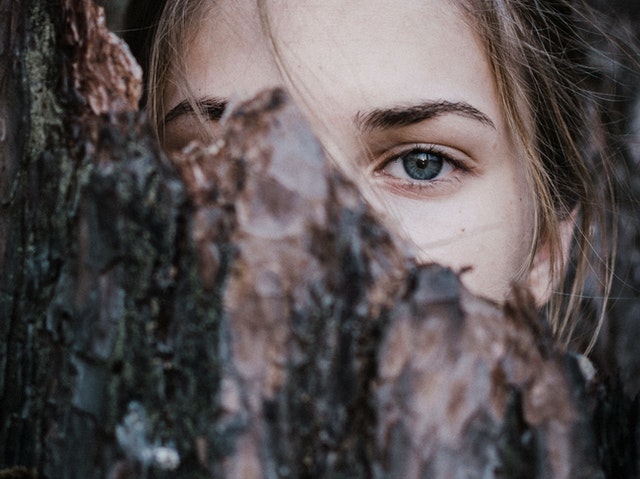Epidemiologists reveal COVID-19 concerns about human behavior
The New York Times this week published the results of a survey in which 511 epidemiologists and infectious disease specialists were asked about “when they expect to resume 20 activities of daily life, assuming that the pandemic and the public health response to it unfold as they expect.”
The Times noted that the answers are not guidelines for the public, but rather represent the respondents’ own circumstances, risk tolerance and expectations about when there will be widespread testing, contact tracing, treatment and vaccination for COVID-19.
The respondents “mostly agreed that outdoor activities and small groups were safer than being indoors or in a crowd,” and that masks would be necessary for a long time. “Fresh air, sun, socialization and a healthy activity will be just as important for my mental health as my physical well-being,” said Anala Gossai, a scientist at Flatiron Health, a health technology firm.
The outdoors holds a special appeal in a time of isolation and social distancing, considering the physical and mental benefits of being outside. “When it’s nice outside and we are able to get out and involve ourselves in physical exercise, that’s good for our bodies as well as our minds," said AccuWeather Founder and CEO Dr. Joel N. Myers.

This electron microscope image made available and color-enhanced by the National Institute of Allergy and Infectious Diseases Integrated Research Facility in Fort Detrick, Md., shows Novel Coronavirus SARS-CoV-2 virus particles, orange, isolated from a patient. (NIAID/National Institutes of Health via AP)
Experts say the weather indoors could be a factor in the spread of SARS-CoV-2, the pathogen that causes COVID-19. In mid-May, AccuWeather explored the possibility air conditioners could be spreading the coronavirus. Air quality expert Dr. William Bahnfleth of Penn State University said there may not be a simple answer to the question, but poor ventilation may play an important role in increased transmission.
“The outside air is brought into buildings to dilute contaminants that are generated inside the building,” Bahnfleth told AccuWeather. If there is no ventilation, then concentration levels of any contagions present in the air “will just keep building up to some point, and we’ve seen cases where ventilation rates were documented to be low and there were a lot of infections.”
Dr. Myers continues to stress that key point. “The more ventilation there is, the more you disperse whatever virus there is in the air,” he said. “The more you mix the air, the less the concentration. And it may be that the concentration is critical.
“Air circulation is key. It is healthy to air out your home,” he added. His view is supported by the Centers for Disease Control and Prevention (CDC), which recommends increasing a home’s ventilation by opening windows to keep your home safe at this time.
“People may be afraid that the germs are going to come in,” Myers said. “The chance of significant virus coming in your window to harm you – if there are not people right outside your window – is infinitesimal. But you are going to get fresh air and it is healthier because if you are in your home cooped up, the air is stale and dirtier.”
Indoors or outdoors, some of the epidemiologists in The New York Times survey said they would refrain from nearly all of the 20 activities listed until a vaccine for the virus had been widely distributed. Others said they would wait for a vaccine to take part in the indoor activities on the list.
Among the outdoor-related activities covered in The New York Times survey were questions about hiking or picnicking outdoors with friends, and another about the likelihood of attending a sporting event, concert or play. The respondents were more likely to go hiking/picnicking in the next three to 12 months (41 percent). Attending an event, concert or play was widely dismissed, with 64 percent of the respondents saying it would be a year or more before they would do so.
Many respondents even said they may never greet people the same way; 42 percent said they would not hug or shake hands for more than a year. However, that percentage may be skewed by the audience answering the question.
For example, T. Christopher Bond of Bristol Myers Squibb replied, “Real epidemiologists don’t shake hands.”
نیویارک ٹائمز نے اس ہفتے ایک سروے کے نتائج شائع کیے جس میں 511 وبائی امراض کے ماہر اور متعدی بیماریوں کے ماہرین کے بارے میں پوچھا گیا تھا کہ "جب وہ روز مرہ کی زندگی کی 20 سرگرمیاں دوبارہ شروع کرنے کی توقع کرتے ہیں تو ، یہ فرض کرتے ہوئے کہ اس کی وبائی بیماری اور صحت عامہ کا ردعمل ان کی توقع کے مطابق ظاہر ہوتا ہے "
ٹائمز نے نوٹ کیا کہ جوابات عوام کے لئے رہنما اصول نہیں ہیں ، بلکہ جواب دہندگان کے اپنے حالات ، خطرے سے رواداری اور توقعات کی نمائندگی کرتے ہیں جب COVID-19 کے لئے وسیع پیمانے پر جانچ ، رابطہ ٹریسنگ ، علاج اور ویکسینیشن ہوگی۔
جواب دہندگان "زیادہ تر اس بات پر متفق تھے کہ بیرونی سرگرمیاں اور چھوٹے گروہ گھر کے اندر یا ہجوم میں ہونے سے کہیں زیادہ محفوظ ہیں ،" اور یہ ماسک زیادہ عرصے تک ضروری ہوں گے۔ "صحت یافتہ ، سورج ، سماجی اور صحت مندانہ سرگرمی میری ذہنی صحت کے لئے اتنی ہی اہم ہوگی جتنی میری جسمانی تندرستی۔"
باہر رہنے کے جسمانی اور ذہنی فوائد پر غور کرتے ہوئے ، تنہائی اور معاشرتی دوری کے وقت میں باہر کی خصوصی اپیل ہوتی ہے۔ ایکو ویدر کے بانی اور سی ای او ڈاکٹر جوئل این مائرز نے کہا ، "جب یہ باہر سے اچھا ہوتا ہے اور ہم باہر نکل سکتے ہیں اور خود کو جسمانی ورزش میں شامل کرسکتے ہیں تو یہ ہمارے جسموں اور ہمارے دماغوں کے ل for اچھا ہے۔"
یہ الیکٹران مائکروسکوپ امیج فورٹ ڈیٹرک ، ایم ڈی ، میں نیشنل انسٹی ٹیوٹ آف الرجی اینڈ انفیکٹو بیماریوں انٹیگریٹڈ ریسرچ سہولت کے ذریعہ دستیاب اور رنگ میں بڑھایا گیا ہے ، جس میں ناول سے کورونا وائرس سارس-کو -2 وائرس کے ذرات ، سنتری ، کو مریض سے الگ تھلگ دکھایا گیا ہے۔ (این آئی اے آئی ڈی / قومی ادارہ صحت کے ذریعہ اے پی)
ماہرین کا کہنا ہے کہ گھر کے اندر کا موسم سارس کووی 2 کے پھیلاؤ کا ایک عنصر ثابت ہوسکتا ہے ، جو اس بیماری کی وجہ سے کوویڈ 19 کا سبب بنتا ہے۔ مئی کے وسط میں ، ایکو ویدر نے اس امکان کی تلاش کی کہ ایئر کنڈیشنر کورونا وائرس پھیل سکتے ہیں۔ پین سٹیٹ یونیورسٹی کے ایئر کوالٹی کے ماہر ڈاکٹر ولیم بہنفلتھ نے کہا کہ اس سوال کا کوئی آسان جواب نہیں ہوسکتا ہے ، لیکن ٹرانسمیشن میں اضافے میں خراب وینٹیلیشن اہم کردار ادا کرسکتا ہے۔
"عمارت کے اندر پیدا ہونے والے آلودگیوں کو کم کرنے کے لئے عمارتوں میں بیرونی ہوا لایا جاتا ہے ،" بہنفلتھ نے ایکو ویتر کو بتایا۔ اگر وہاں وینٹیلیشن نہیں ہے تو ، پھر ہوا میں موجود کسی بھی آلودہ کی حراستی کی سطح "کسی حد تک ترقی کرتی رہے گی ، اور ہم نے ایسے معاملات دیکھے ہیں جن میں وینٹیلیشن کی شرح کم ہونے کی دستاویز کی گئی تھی اور بہت سارے انفیکشن موجود ہیں۔"
ڈاکٹر مائرس اس اہم نکتہ پر زور دیتے ہیں۔ انہوں نے کہا ، "جتنا زیادہ وینٹیلیشن ہوتا ہے ، آپ فضا میں موجود ہر وائرس کو جتنا زیادہ منتشر کرتے ہیں۔" “آپ جتنا ہوا کو گھل ملتے ہیں ، اس کی حراستی کم ہوتی ہے۔ اور یہ ہوسکتا ہے کہ حراستی اہم ہو۔
"ہوا کی گردش کلیدی ہے۔ آپ کے گھر سے باہر جانا صحت مند ہے۔ بیماریوں کے کنٹرول اور روک تھام کے مراکز (سی ڈی سی) کے ذریعہ اس کے نظریہ کی تائید کی گئی ہے ، جو تجویز کرتا ہے کہ اس وقت آپ کے گھر کو محفوظ رکھنے کے لئے کھڑکیاکھول کر گھر کے ہوادوں کو بڑھایا جائے۔
مائرز نے کہا ، "لوگ خوفزدہ ہو سکتے ہیں کہ جراثیم آنے لگیں گے۔" "آپ کی ونڈو میں اہم وائرس آنے کا امکان آپ کو نقصان پہنچا سکتا ہے - اگر آپ کے ونڈو کے باہر لوگ نہیں ہیں تو - غیر معمولی ہے۔ لیکن آپ کو تازہ ہوا ملنے جارہی ہے اور یہ صحت مند ہے کیونکہ اگر آپ اپنے گھر میں کھڑے ہیں تو ہوا باسی اور تیز تر ہے۔
گھر کے اندر یا باہر ، نیو یارک ٹائمز کے سروے میں شامل کچھ وبائی امراض کے ماہر نے کہا ہے کہ وہ اس وقت تک درج 20 میں سے تمام سرگرمیوں سے باز رہیں گے جب تک کہ وائرس کے لئے ایک ویکسین وسیع پیمانے پر تقسیم نہ کی جائے۔ دوسروں نے کہا کہ وہ فہرست میں انڈور سرگرمیوں میں حصہ لینے کے لئے کسی ویکسین کا انتظار کریں گے۔
نیو یارک ٹائمز کے سروے میں آؤٹ ڈور سے متعلق سرگرمیوں میں ، دوستوں کے ساتھ باہر پیدل سفر یا پکنکنگ کے بارے میں سوالات تھے ، اور ایک کھیل کے پروگرام ، کنسرٹ یا کھیل میں شرکت کے امکانات کے بارے میں۔ اگلے تین سے 12 ماہ (41 فیصد) میں جواب دہندگان پیدل سفر / پکنکنگ جانے کا امکان زیادہ رکھتے ہیں۔ کسی پروگرام ، کنسرٹ یا کھیل میں شرکت کو بڑے پیمانے پر خارج کردیا گیا ، 64 فیصد جواب دہندگان کا کہنا تھا کہ ایسا کرنے سے قبل یہ ایک سال یا اس سے زیادہ وقت ہوگا۔
بہت سے جواب دہندگان نے یہاں تک کہا کہ شاید وہ کبھی بھی لوگوں کو اسی طرح سے سلام نہیں کرسکتے ہیں۔ 42 فیصد لوگوں نے کہا کہ وہ ایک سال سے زیادہ عرصہ تک گلے نہیں لگائیں گے یا مصافحہ نہیں کریں گے۔ تاہم ، اس فیصد کو سامعین سوال کا جواب دینے سے ہچکچاتے ہیں۔
مثال کے طور پر ، برسٹل مائرز اسکائب کے ٹی کرسٹوفر بانڈ نے جواب دیا ، "اصلی مہاماری ماہرین ہاتھ نہیں ہلاتے ہیں۔"



Comments
Post a Comment